Summary:
Happy National Hispanic Heritage Month! This year’s theme is Pioneers of Change: Shaping the Future Together. That theme has made me reflect upon my own family’s history in this country, how far we’ve come, and to think about what it means to shape the future for this and generations to come.
To shape the future, we must know our past. As a proud Mexican American and fifth-generation Arizonan, my family has deep roots in this land, going back to the 1700s. My great-great Nana Eduvijes Fontes was a pioneer woman, who lived through hard times during the Depression, witnessed battles of the Mexican Revolution, and traveled hundreds of miles along what is now known as the Arizona-Mexico border helping guide soldiers in the Arizona desert. My mom, as the oldest, is her namesake. My other great-great Nana operated a food stand, even selling once to Francisco “Pancho” Villa, who was a leader in the Mexican Revolution. I am the granddaughter of Celia and Albert Fontes, and the daughter of Eduvijes, who raised me as a single parent.
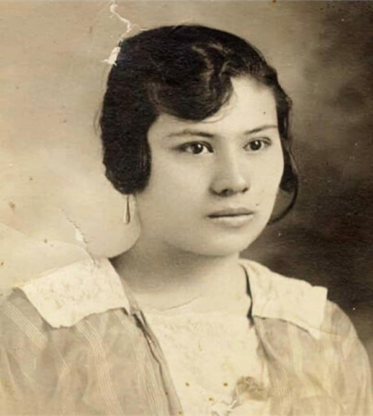
Photo Caption: Eduvijes Fontes
Raising a large Mexican American family in Phoenix in the 1950s and 60s meant facing discrimination, even though it was the norm in Phoenix at the time. My mom used tell me stories about the times when the family dressed up to attend mass in the downtown Basilica. Our family was never allowed in the upstairs pews—but instead, would be forced to sit and pray in the basement of the church. They were isolated and hidden from the rest of the church goers. She also grew up in a time where Spanish was not encouraged, and often times kids would get hit for speaking it, so families spoke English.
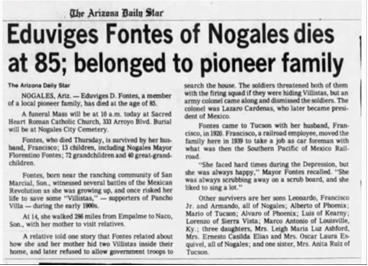
Photo Caption: Eduvijes Fontes in The Daily Arizona Star paper.
And now—just one generation later, her daughter runs the Office for Civil Rights at the U.S. Department of Health & Human Services. The struggles and victories of my family, of our community, are the foundation of the work I do every day as I pioneer for change. Our histories, and stories fuel our fight for justice and equity in healthcare, ensuring that every person, no matter their background, has equal access and opportunity.
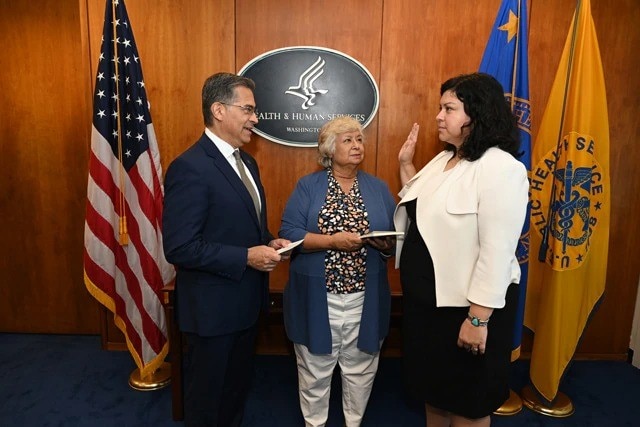
Photo Caption: HHS Secretary Xavier Becerra pictured with OCR Director Melanie Fontes Rainer and her mother.
There are over 62 million Hispanic and Latino individuals living in the United States—and that means naming and recognizing the unique challenges in accessing the health care and human services that our communities face. I’ve had the privilege of traveling across the country to speak with Latino organizations and community leaders. I’ve met with a range of grassroots, local advocates, national organizations and advocates—and they have elevated preeminent civil rights issues of our day—including the need for culturally competent language access, and to make care more affordable and accessible. Reflecting on these conversations, I am continually inspired by the strength and unity within our communities, which fuels our work.
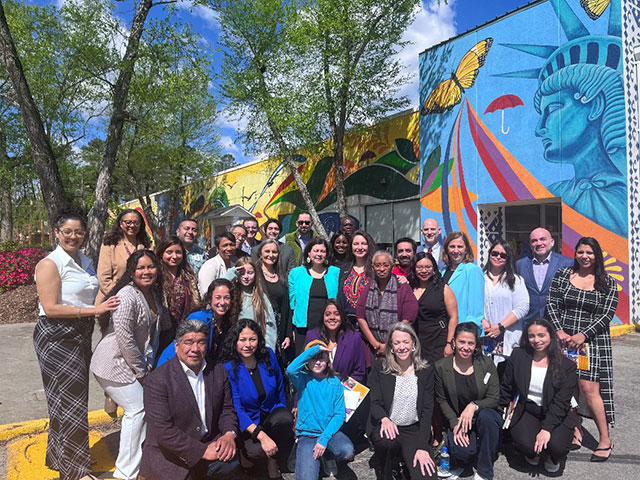
Photo Caption: OCR Director Melanie Fontes Rainer pictured with North Carolina community members at El Futuro.
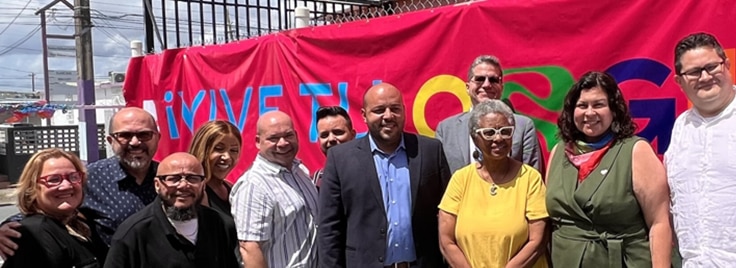
Photo Caption: OCR Director Melanie Fontes Rainer, Chief of Staff Dennis Gonzalez, and Deputy Director of Enforcement Luis Perez, pictured with WAVES Ahead, an organization that provides advocacy and services for the LGBT+ older adults in Puerto Rico.
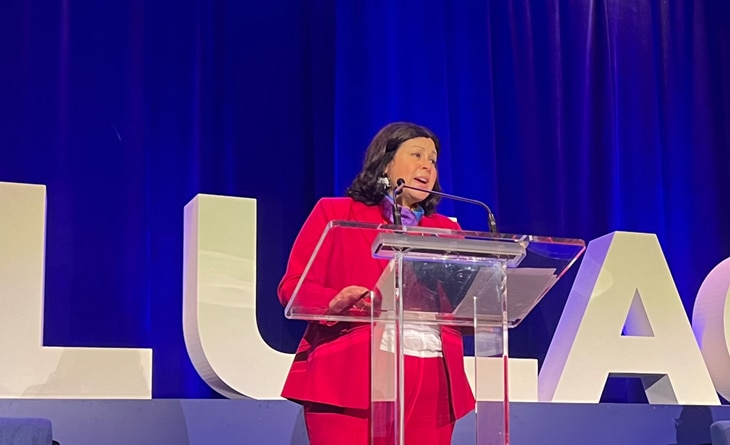
Photo Caption: OCR Director Melanie Fontes Rainer delivering remarks at the annual 2024 LULAC National Convention.
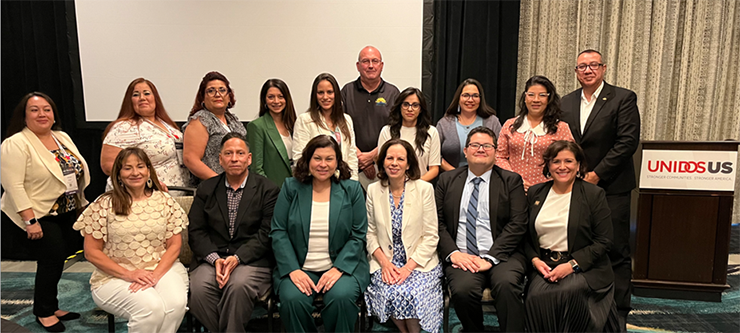
Photo Caption: OCR Director Melanie Fontes Rainer and Chief of Staff Dennis Gonzalez at the annual UnidosUS Conference, Unidos is a Hispanic civil rights and advocacy organization.
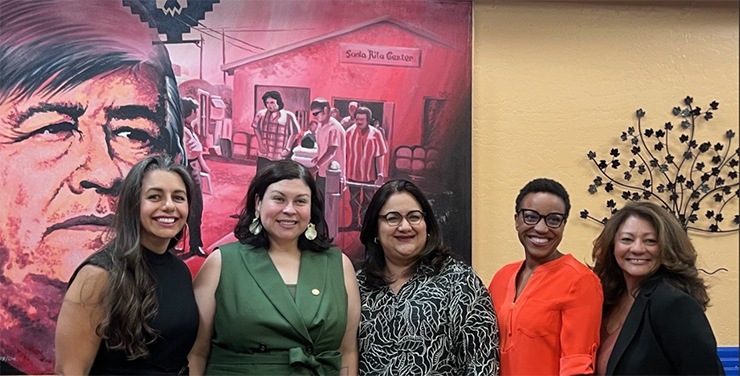
Photo Caption: OCR Director Melanie Fontes Rainer visiting Chicanos Por La Causa in Arizona.
My office, OCR, published a rule, Section 1557 of the Affordable Care Act, which advances nondiscrimination in health care no matter who you are. The rule now requires that language assistance services be provided free of charge, accurately, and timely, protecting the privacy of individuals with limited English proficiency. Training and notices are also required, so that more patients can access and understand information about their health and health care regardless of the primary language they speak. OCR also led HHS is updating its language access plan as well as individual plans for each of the 25 divisions, demonstrating the Department’s commitment to ensuring accessible, culturally and linguistically competent, and comprehensive services in health care and human services for all communities. You can find additional information at www.hhs.gov/LanguageAccess.
I am so proud to be part of an Administration that supports and honors the diverse history of generations of Latinos, who have shaped this country. I will always use my family’s history as motivation in working with all of you to fulfill the OCR mission and towards the betterment for all to go onwards for the future. ¡Feliz Mes de la Herencia Hispana!




